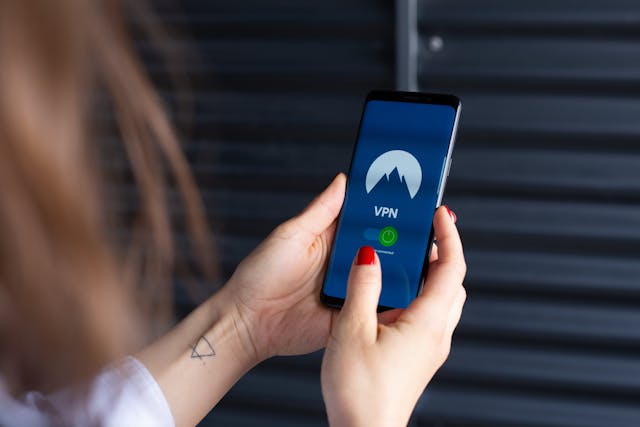Let’s face it—tech jargon can be intimidating. VPNs, DNS leaks, end-to-end encryption… it can sound like you need a computer science degree just to stay safe online. But here’s the truth: understanding what a VPN is, and why it might be useful for you, doesn’t require any deep technical knowledge. It just takes a few minutes and a willingness to peek behind the digital curtain.

So, here’s the non-geek’s guide to VPNs. No code, no buzzwords—just straight talk on what they are, how they work, and why you might want to use one.
Post Contents
What Is a VPN, Really?
A VPN, or Virtual Private Network, is basically a privacy tool that creates a secure, encrypted tunnel between your device and the internet. That’s it. Imagine sending your internet traffic through a private pipeline that hides your activity from anyone watching—your internet provider, your employer, or even hackers on public Wi-Fi.
Think of it like this: without a VPN, you’re walking down the internet street with your address on your back. With a VPN, you’re wearing an invisibility cloak. Anyone trying to follow you just sees the cloak—they don’t know who you are, where you’re going, or what you’re doing.
Why Do People Use VPNs?
You don’t need to be doing anything shady to want a little privacy. Here are some very normal, very relatable reasons people use VPNs:
1. You Use Public Wi-Fi (A Lot)
Coffee shops, airports, hotels—public Wi-Fi is convenient, but it’s also a hotbed for data snooping. VPNs protect your information from anyone trying to intercept it on these open networks.
2. You Want to Watch Your Favorite Shows Abroad
Ever traveled and realized your Netflix or BBC iPlayer library has completely changed? VPNs let you “appear” as if you’re in your home country, giving you access to the content you’re used to.
3. You Don’t Like Being Tracked
Websites, advertisers, and ISPs track what you do online to serve you ads or sell your data. A VPN helps mask your activity, making you harder to profile.
4. You Work Remotely
Many businesses require employees to use VPNs to safely access internal systems and files when working offsite. It’s like a security badge for the internet.
Okay, But Is It Legal?
Yes, VPNs are 100% legal in most countries, including the UK, the US, and across most of Europe. They’re tools for online privacy and security. However, what you do while using a VPN is still subject to the law—so don’t think it’s a get-out-of-jail-free card.
Some countries with strict internet censorship (like China or Iran) have banned or restricted VPN usage. But for the average person in most regions, VPNs are just another tool in the privacy toolkit.
Will It Make My Internet Slower?
Sometimes. Because your data is being encrypted and rerouted, it might take a little longer to reach its destination. But with modern VPN providers and fast servers, most users barely notice a difference. If you’re just streaming, browsing, or working from home, it’s not usually a deal-breaker.
What About Free VPNs?
Here’s the thing—free VPNs often make money by doing the exact thing you’re trying to avoid: selling your data. They might track your online activity, show ads, or offer limited features.
If you’re serious about protecting your privacy, consider a reputable paid VPN. They typically offer better security, faster speeds, and no shady data practices.
VPNs and the Evolving Internet Economy
As more of our lives shift online—shopping, entertainment, even how we manage money—privacy becomes more valuable. VPNs are increasingly essential for people who use platforms that value anonymity and encryption, like crypto exchanges or decentralized apps.
One area where VPNs have found unexpected popularity is the world of crypto gambling. Players in different countries often face geo-restrictions that limit access to certain platforms. Using a VPN, they can bypass those restrictions and access games and services in a secure, encrypted environment.
Today’s top platforms are responding to this trend by embracing privacy-first tools, decentralization, and user-centric design. If you’re curious about how these platforms work, and how tech like VPNs fits into the bigger picture, check out the latest technology at crypto gambling sites—you’ll find tools that prioritize not just fun and fairness, but security and digital autonomy.
Do You Really Need One?
That depends. If you’re concerned about privacy, use public Wi-Fi regularly, travel often, or just want more control over your digital life, a VPN is worth considering. It’s not about paranoia—it’s about awareness.
You don’t need to become a tech whiz. You just need to know that the internet isn’t always a neutral space. VPNs give you back a bit of control in an online world that’s constantly watching, profiling, and collecting.
Final Thoughts: Privacy Isn’t Just for “Tech People”
You don’t have to understand the backend code to appreciate the front-end benefit: peace of mind. A VPN won’t solve every online risk, but it’s a strong first step toward a more private, secure, and flexible internet experience.
In a world where your data is more valuable than ever, taking your privacy into your own hands isn’t just smart—it’s necessary. And thankfully, with VPNs, it’s never been easier.